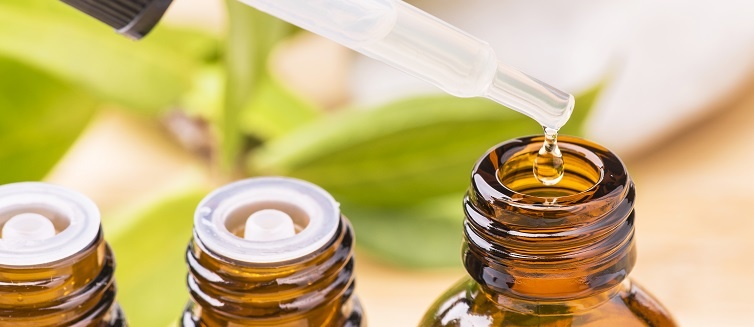Cannabidiol, or CBD oil is being to be touted by many as the next big thing in health and wellness. Proponents claim it can help everything from anxiety and insomnia to chronic pain. Cannabinoids may curb the growth of some cancer cells, according to the National Cancer Institute. But exactly what is CBD oil and does it really have any benefits?
Before you decide to try it out, make sure you know the facts.
What Is CBD Oil?
Cannabis plants, which include hemp and marijuana, contain numerous chemical compounds called cannabinoids. The two main cannabinoids are tetrahydrocannabinol (THC), which produces psychoactive effects, and CBD, which does not.
CBD products — from oils and tinctures to salves, and edibles, can be derived from either hemp or marijuana. Hemp contains a high level of CBD but a low level of THC, topping out at 0.3 percent. Marijuana contains low levels of CBD, but its THC level can range from 0.3 to 30 percent.
CBD oil is the most common form, reports The Street.com. The CBD is mixed with a carrier oil, such as coconut, so that it can be ingested or vaped. Vaping, it should be noted, has been linked to acute lung injury and death. The Centers for Disease Control and Prevention recommends against the use of vaping or e-cigarette products.
Never Miss a Beat!
Subscribe to our health and wellness newsletter for more.
Thank you for subscribing!
You can now select the specific newsletters you'd like to receive.
You are already subscribed.
Subscribe to more newsletters in our email preference center.
Sorry, an error occurred. Please try again later.
Get Healthy Tips Sent to Your Phone!
What Is the History of CBD in Medicine?
The first medicinal use of cannabis dates back to 400 A.D, according to a report in Pharmacy & Therapeutics. In the United States, it first appears in the medical literature in 1850.
Federal restrictions on cannabis products in the U.S. began in 1937, barring their use for medicinal purposes and academic research. Medical cannabis reemerged in 1996, when California passed the Compassionate Use Act, becoming the first state to legalize the use of botanical cannabis under a doctor’s supervision.
Since then, a total of 46 states have either adopted comprehensive medical marijuana/cannabis programs or started to allow low THC/high CBD products for medicinal use, according to the National Conference of State Legislatures.
The legal marijuana industry has become big business in many of these states, with some $9 billion in sales in 2017, according to a CNN Money report. And social media has helped spread the news that medical marijuana and especially CBD oil may be the cure for what ails you. But is it?
What Are CBD Oil’s Benefits?
Consumer interest in medicinal CBD far exceeds the science that supports it. Most research has been done on cells in a lab, or in rats or mice. Studies and clinical trials to determine CBD’s actual effectiveness in treating anxiety, pain, depression, and other health issues are ongoing. Its potential to reduce opioid addiction is also being examined. For now, however, the evidence isn’t there.
Is CBD Oil Safe?
The short- and long-term health effects of CBD oil are not yet known. Accepted safety standards and dosing guidelines don’t exist, which is a significant public health concern, according to the National Academies of Sciences, Engineering, and Medicine.
Unlike traditional pharmaceutical drugs, CBD products aren’t regulated by the U.S. Food and Drug Administration, making it tough for consumers to know what they’re getting. And while CBD companies are legally prohibited from making health claims, that hasn’t stopped many from doing so.
A 2017 study in JAMA: The Journal of the American Medical Association found that out of 84 CBD products purchased online and tested, fewer than a third contained the amount of CBD they claimed. In addition, 18 of the 84 products contained THC which was not listed on the label.
What Else Should I Know About CBD Oil?
As with any alternative medicine, talk to your doctor before taking CBD products.
High levels of CBD can interfere with how your liver metabolizes other drugs, including some statins, antidepressants, and blood thinners, according to Consumer Reports. This can reduce the effectiveness or increase the side effects of other drugs you’re taking.
Technically, doctors can’t prescribe CBD oil since some forms are illegal at the federal level; they can only recommend it. In some states where it is legal, you’ll need a doctor’s permission to purchase CBD oil.
If you’re interested in CBD oil and other complementary approaches to treating health issues, visit our Center for Integrative Medicine or call 412-623-3023.
About UPMC Western Behavioral Health
UPMC Western Psychiatric Hospital is the hub of UPMC Behavioral Health, a network of community-based programs providing specialized mental health and addiction care for children, adolescents, adults, and seniors. Our mission is to provide comprehensive, compassionate care to people of all ages with mental health conditions. UPMC Western Psychiatric Hospital is a nationally recognized leader in mental health clinical care, research, and education. It is one of the nation’s foremost university-based psychiatric care facilities through its integration with the Department of Psychiatry of the University of Pittsburgh School of Medicine. We are here to help at every stage of your care and recovery.
